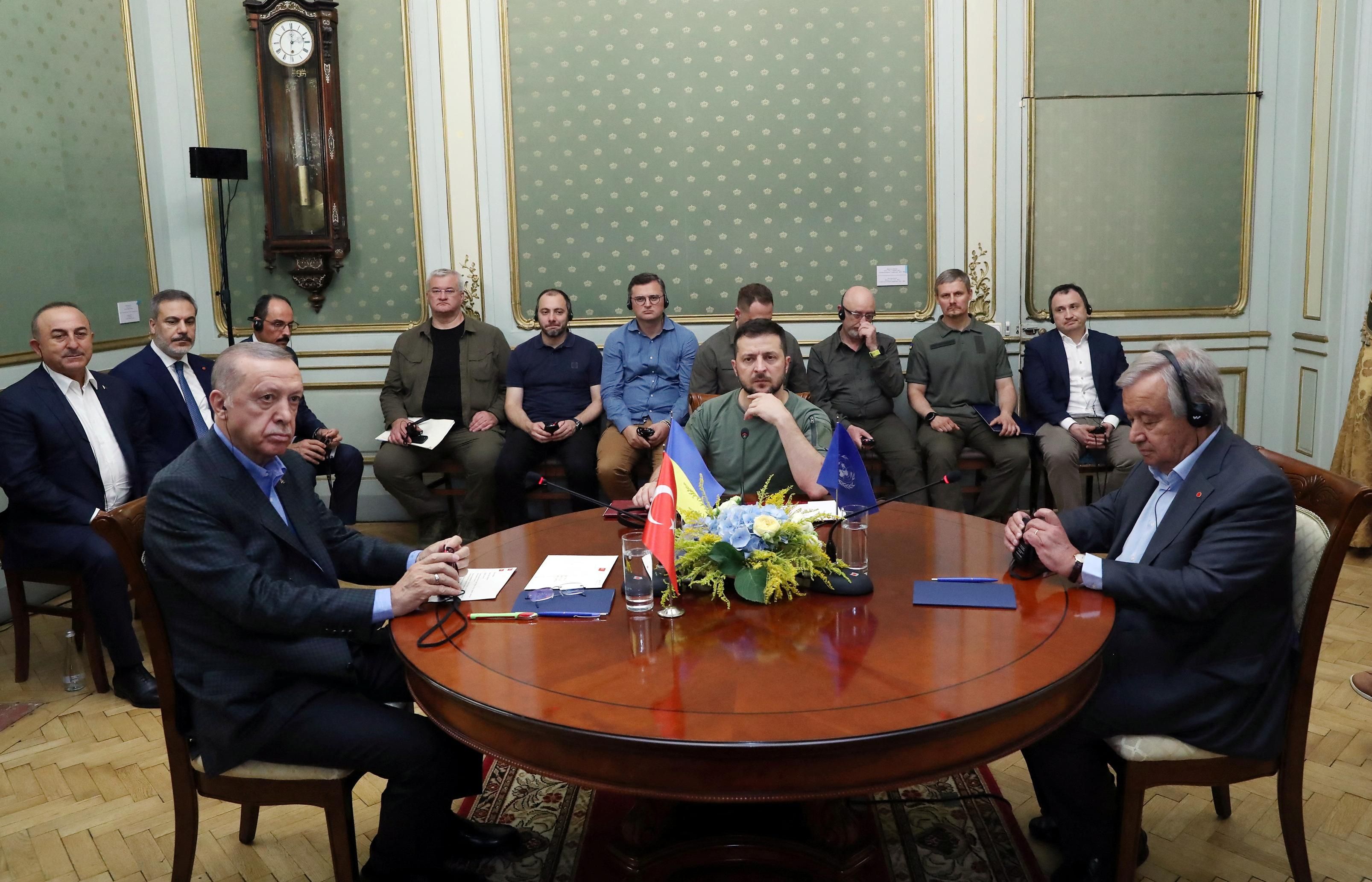Erdogan is everywhere
Recep Tayyip Erdogan has been very busy this week. On Thursday, he flew to Lviv to meet with Ukrainian President Volodymyr Zelensky and UN Secretary-General António Guterres, the Turkish president’s first visit to Ukraine since Russia’s war began six months ago. Erdogan, who has tried to position himself as an elder statesman and mediator between Kyiv and Moscow, vowed to help rebuild Ukrainian infrastructure just weeks after brokering a deal with Russia to resume Ukrainian grain exports from Black Sea ports amid a global food crisis. The trio also discussed efforts to secure a contested nuclear power plant in southern Ukraine. This comes a week after Erdogan held a face-to-face with Vladimir Putin in Sochi, Russia, where they pledged to boost energy cooperation. What’s more, Erdogan’s Ukraine trip came just one day after Ankara announced it was restoring full diplomatic ties with Israel. Indeed, Erdogan is looking to get wins wherever he can as he tries to divert attention from Ankara’s deepening economic woes. In a move that made many economists shudder, Turkey’s central bank on Thursday further slashed interest rates to 13% despite the fact that inflation has topped a whopping 80%. Loosening monetary policy to boost growth has long been Erdogan’s shtick, but as a cost of living crisis continues to hurt Turks, his ruling party is falling in the polls less than a year out from elections.
Worshippers killed in Kabul
At least 21 Afghans were killed, and scores more injured, in a blast on Wednesday night at a mosque in Kabul while worshippers were engaged in evening prayers. Though no group has taken responsibility for the carnage, it is thought to be the work of ISIS-K, an offshoot of the broader Islamic State movement that expanded to Central Asia in 2015 and was responsible for a deadly attack on American troops amid the US withdrawal from Afghanistan last summer. Over the past year, ISIS-K has been intent on antagonizing the Taliban, which it says insufficiently enforces Sharia law (the two groups have also clashed over territory in the past). This attack also comes weeks after the Taliban labeled ISIS-K “a false sect,” banning Afghans from interacting with the group. Some analysts say that Afghanistan has recorded fewer violent incidents over the past year, in part because US forces are no longer targeting Taliban strongholds. But it's unlikely that many Afghans caught in the crossfires of this deadly battle for influence — in addition to a growing humanitarian crisis — feel the same way.
US-Taiwan trade talks
The US and Taiwan will hold formal trade talks in the fall, Washington announced two weeks after US House Speaker Nancy Pelosi's uber-controversial trip to the self-governing island sparked a furious response from China. Details are vague, but so far the discussions will focus on boosting digital and agriculture trade, anti-corruption standards, and a range of other issues. Taiwan sold almost $66 billion worth of goods in 2021 to the US, which is Taipei’s second-biggest market after China. But the island is far more dependent on trade with the mainland, which along with Hong Kong accounts for more than 40% of Taiwanese exports. The US, for its part, is keen to deepen economic ties with Taiwan as it tries to expand its influence in the Asia Pacific. Additionally, Washington is very hungry for one thing that Taiwan makes a lot of: semiconductors. Although the CHIPS Act recently signed into law by President Joe Biden aims to boost domestic manufacturing of the tech, the US will still need lots of Taiwanese-made semiconductors in the near term. China, for its part, blasted the talks, warning the US not to undermine Beijing’s “core interests.” While the US maintains robust ties with Taiwan, it does not formally recognize its independence from the mainland.
